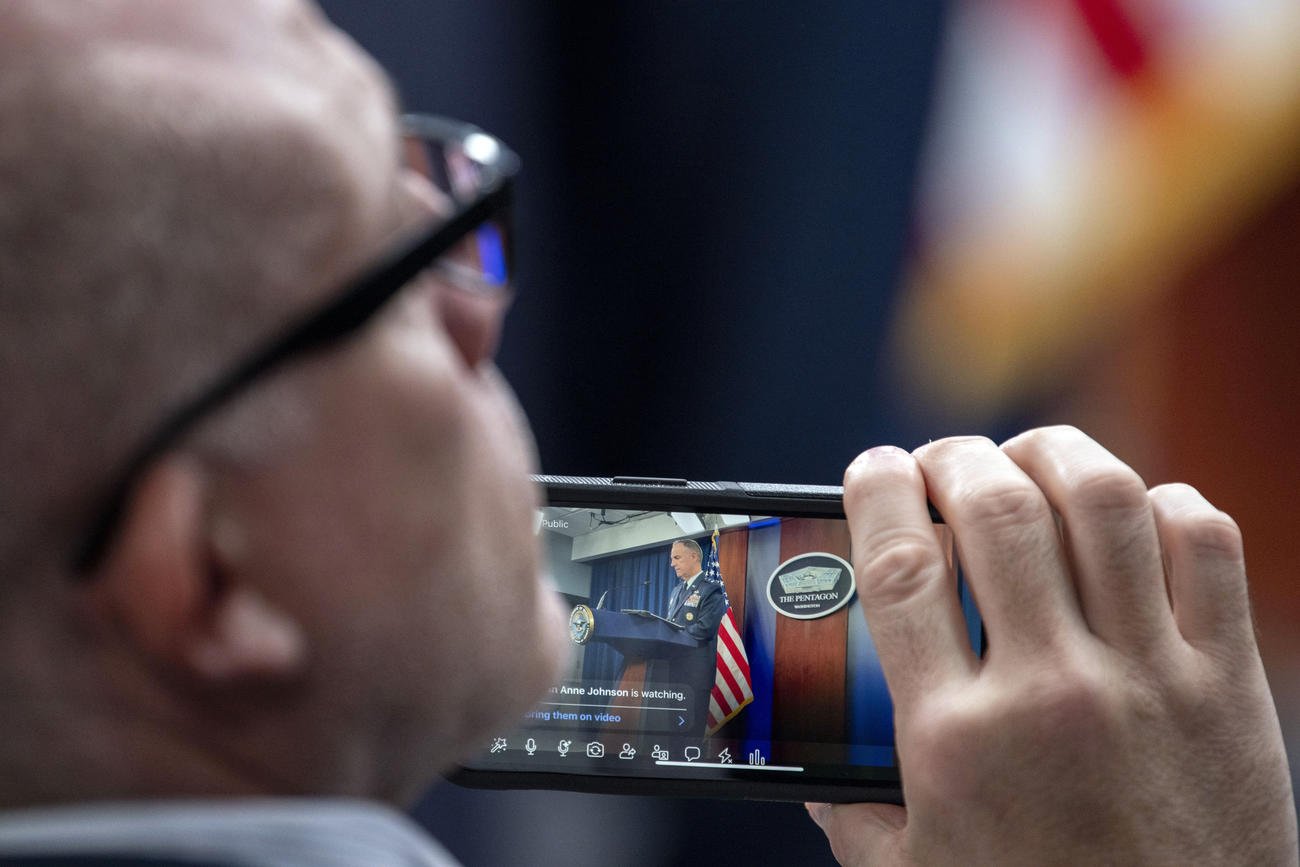

Defense Secretary Pete Hegseth has taken yet another step to curtail the work of the press inside the Pentagon by imposing harsh restrictions on where reporters can go without official escort in a memo released late Friday.
The new rules forbid reporters from going into the hallway where Hegseth’s office is located “without an official approval and escort from the Office of the Assistant to the Secretary of Defense for Public Affairs” — a job held by top Pentagon spokesman Sean Parnell.
If reporters wish to visit the public affairs offices of any of the other services, “they are required to be formally escorted to and from those respective offices,” the memo adds. The Pentagon will also require reporters to sign a document pledging to protect “sensitive information,” likely setting up situations where unfavorable reporting involving documents could be used as pretense to strip journalists of access to the building.
Read Next: Pentagon Sends 1,100 More Troops to Border in Continued Mission Ramp-Up
The move is just the latest in a series of restrictions on press access inside the Defense Department that began with booting legacy press outlets from their workspaces inside the Pentagon and then escalated to closing the press briefing room to reporters.
While none of the actions outright prohibit the press from covering the largest federal agency, they are an escalating trend of ever increasing restrictions on how much access reporters can have to officials who run each of the military services and the Defense Department.
The memo on Friday couched the new restrictions as “updated security measures” that “are needed to reduce the opportunities for in-person inadvertent and unauthorized disclosures.”
The memo also notes that “in coming weeks” Pentagon press corps members will be given new access badges with “a clearer ‘PRESS’ identifier.” Hegseth underlined those words on the copy that was made public.
While the new change, and several of the recent firings of top officials from Hegseth’s inner circle, have ostensibly been over leaks to the media, the secretary never fully addressed many of the lingering questions over his use of the commercial messaging app Signal.
In late March, it was revealed by The Atlantic that members of President Donald Trump’s Cabinet — including Hegseth, National Security Adviser Mike Waltz, Vice President JD Vance, CIA Director John Ratcliffe, Director of National Intelligence Tulsi Gabbard and Secretary of State Marco Rubio — were part of a group chat on the unsecured app in which they discussed upcoming strikes against Yemen’s Houthi rebels.
That discussion of sensitive military operations information on a commercial app that could be hacked by America’s adversaries became public because the group inadvertently added a journalist — The Atlantic’s editor-in-chief — to the text chat.
In April, the Defense Department inspector general’s office said it was reviewing Hegseth’s use of the app to discuss sensitive details of planned U.S. airstrikes in Yemen.
Then, later in April, media reports revealed that he had a second chat on Signal where he shared those same strike details with his wife and brother. NBC reported that those details came from a secure communications channel used by U.S. Central Command.
Meanwhile, the Pentagon has become one of the least transparent agencies within the Trump administration, even as it ratchets down access to the press.
Shortly after taking the job, Sean Parnell posted a video in which he promised to offer weekly updates and “to be the most transparent DoD in American history for the warfighters and the American people.”
However, Parnell has hosted only one press conference since taking the job, compared to the Trump White House and State Department, which have been providing regular public press briefings for months.
Parnell’s deputy, Kingsley Wilson, has only held press briefings for children during the Pentagon’s observance of “Take Your Child to Work Day.”
Wilson has also not addressed her yearslong history of social media posts that featured extremist rhetoric ranging from antisemitic conspiracy theories to white nationalist talking points.
Parnell announced Friday that he was promoting Wilson to the job of press secretary for the Pentagon, saying that her “leadership has been integral to the DoD’s success and we look forward to her continued service to President Trump!”
Related: Pentagon’s No. 2 Spokesperson Has Long History of Antisemitic, Bigoted Social Media Posts
